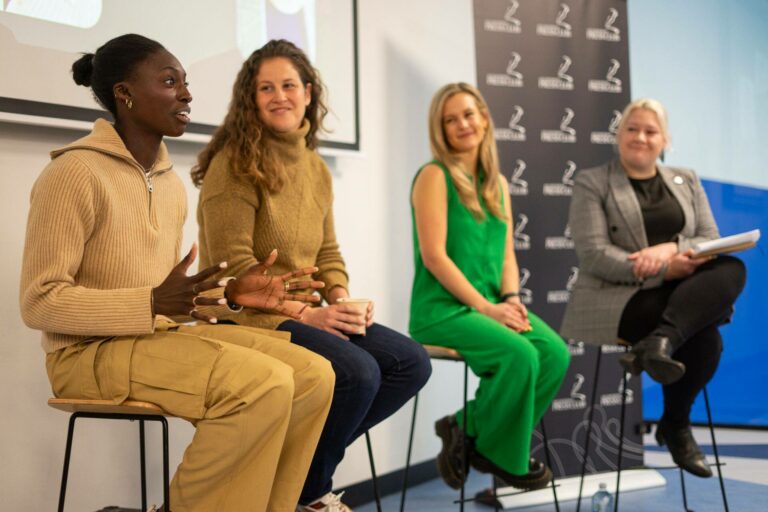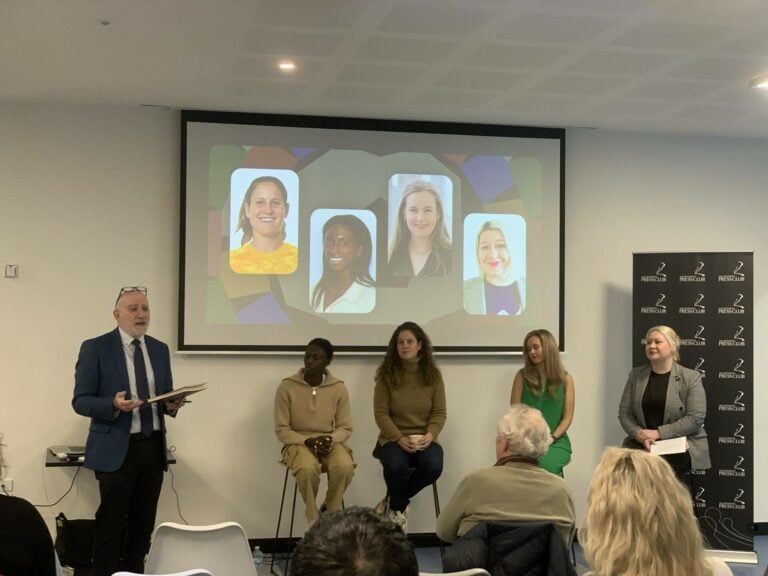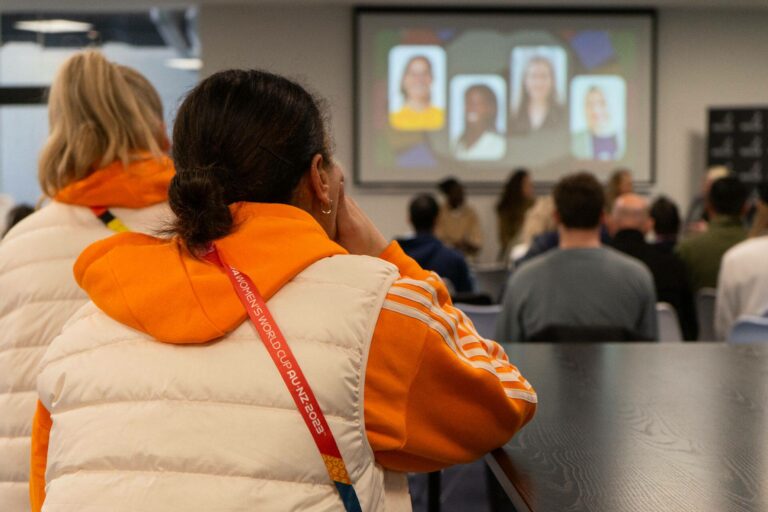Following Matilda’s triumphant victory against Denmark, a forum titled The World Cup, Women’s Sport, and Journalism: Where to From Here was held at SMFC Lakeside Stadium on Tuesday, August 8.
Supported by the South Melbourne FC ‘Hellas’ (SMFC), the Melbourne Press Club (MPC) event discussed how women’s sports are covered in the media, and explored prospects of increased attention to various women’s sports, fueled by the momentum of FIFA Women’s World Cup fever.
Speaking to Neos Kosmos, Bill Papastergiadis OAM, the Chair of SMFC, who introduced the event, highlighted the importance of ensuring “equality in payments and remuneration alongside development of infrastructure within women’s sports,” which he believes will contribute in “greater participation.”
He mentioned that the SMFC’s “pioneering position” in women’s football when the club introduced women’s football in 1977, and emphasised the club’s commitment to diversity, and its vision to cultivate inclusivity across all levels and abilities, whether it involves a blind football team or individuals using wheelchairs.

One of the event’s four panellists,Gabriela Garton, represented Argentina in the 2019 World Cup and played a pivotal role in Melbourne Victory’s win in the 2021 W-League grand final.
When asked by Neos Kosmos about why male sports receive more media coverage than women’s, she said because, “sports have historically been intertwined with concepts of masculinity and nationalism, men’s sports have been built on that narrative, that has been supported and extensively covered by the media.”
She stressed the lack of support and media efforts in pushing sport governing bodies to address the gender pay gap and prize money disparity in women’s soccer saying, “If you are able to give the players the conditions that they need to be better, then football is going to be better, and the product is going to be better.”

Nana Owusu-Afriyie – an Australian and New Balance track and field athlete, and co-hosts The Wattle Nest Show for The Glory on the SEN App emphasised the need for grass roots and club investment to drive change, in how women’s sports are portrayed in the media.
“You have to put in to get something out of it. And people are scared for change,” she said.
The athlete emphasised the importance of support from club level as well as organisations, as being at the centre of continued and sustained development of women in sport as well as media coverage. She also called for more education of sports journalists about asking questions which would not put women or men athletes in harms way and used an example of a journalists talking to a female footballer from North Africa who was asked about LGBTIQ rights in her home nation.
“A question like that could put that athlete in a very dangerous position, when they go back home,” said Owusu-Afriyie.
Marnie Vinall, a sports journalist at The Age, who covers the Women’s World Cup FIFA and both men’s and women’s competitions in AFL told Neos Kosmos that the imbalance between male-female media coverage, was simple, “Men just get more clicks. It’s as simple as that.”
She acknowledged Australia’s campaign efforts but attributed the success of boosting the Matildas to the longstanding support of passionate fans across Australia.
“Fans have driven the sport for so long…it’s all about watching all these groups of fans all over Australia actually taking women’s sports seriously.”

Dr. Kasey Symons, a Research Fellow in Swinburne University’s Sport Innovation Research Group, specialises in research on women in sport, sports media, and fan engagement, referred to research indicating a recurring pattern of boom narratives in women’s sports media coverage spanning century.
She stressed the significance of ongoing “investment and sustainable coverage of women’s sports,” to prevent these narratives from fading away.
“We need more coverage, and we need more people doing that work and creating more allies, including men in this space, so people can come into women’s sport and cover it in a way that does champion women’s sport, that respects to athletes and but also understands some of those complications.”
Nick Richardson, CEO of MPC, said that multicultural media platforms like Neos Kosmos have played a key role in elevating soccer as well as women in sport, given the the challenges arising from the “finite space in mainstream media” due to sponsorship restrictions.
“So how do we how do we best tell stories about women’s sport that maximise the value of those stories?
I think this World Cup gives us an opportunity to reflect a bit more deeply on that kind of questions and the further Matildas go in the competition, the more pressing those questions become,” said the MPC CEO.
The event was well attended with over 40 people, and included journalists from Neos Kosmos, Nick Hatzoglou diversity and equity manager from Community Champions, and Maria Dimopoulos AM, a human rights activist and inaugural chair of Harmony Alliance – Australia’s national coalition of migrant and refugee women.









